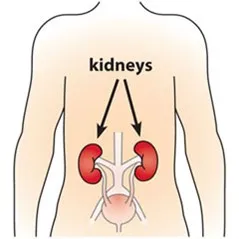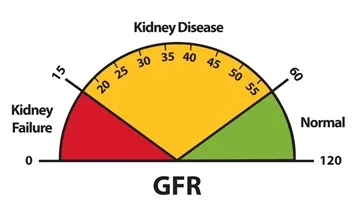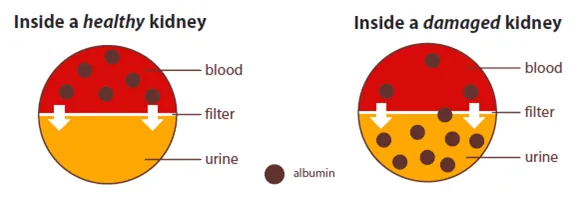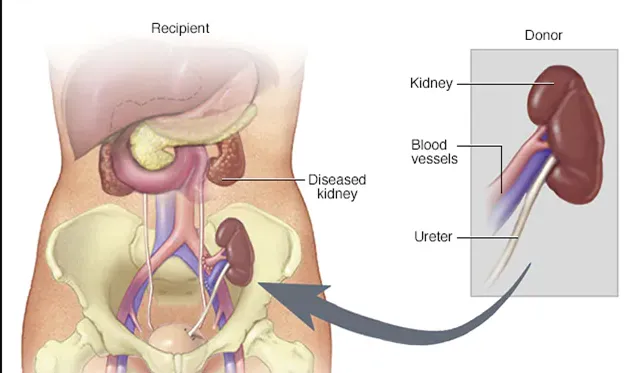According to the Guardian, Nigeria; 25 million Nigerians (13.9 per cent of the 180 million people) have kidney failure- a condition where the kidney can no longer work without dialysis or transplant. Many of them would need Kidney Transplant; however, the resource in Nigeria in limited for Kidney Transplant due to lack of Infrastructure and experience.
MedicalTours.Care specialize in connecting world best facilities with patients of Nigeria to secure quality treatment at most affordable price.
Kidney is a vital organ in the human body responsible for filtering the blood and excreting metabolic by-products. These metabolic by products are passed off as urine. The kidney is also responsible for electrolyte balance and regulation of blood pressure.
Kidney diseases refers to conditions and problems with the kidneys and its function. Kidney diseases are majorly of two types; acute kidney disease and chronic kidney disease.
In acute kidney diseases, kidney function is lost abruptly and can occur due to a variety of causes while in chronic kidney disease, the kidney degenerates slowly up until its functions are impaired. Research have shown that there is a rise in the prevalence of chronic kidney diseases (CKD).
Here are a few known factors that increase the risk of an individual being prone to kidney disease in Nigeria:
1. Poorly controlled Type 1 or type 2 Diabetes
With diabetes, the small blood vessels in the body are injured. When the blood vessels in the kidneys are injured, your kidneys cannot clean your blood properly. Your body retains more water and salt than it should, which can result in weight gain and ankle swelling.
2. Poorly Controlled Hypertension/High Blood Pressure
Over time, high blood pressure harms renal blood vessels. Uncontrolled high blood pressure can cause arteries around the kidneys to narrow, weaken or harden. These damaged arteries are not able to deliver enough blood to the kidney tissue. Due to these damaged vessels, the nephrons do not receive the essential oxygen and nutrients and the kidney loses their ability to filter blood and regulate the fluid, hormones, acids and salts in the body.
3. Obesity
In obese individuals, there is a presence of microalbuminuria, and this predicts future development of overt diabetic nephropathy.
4. Analgesic Addiction (Drug Abuse) or Consumption of herbal remedies
Analgesic nephropathy is injury to the kidneys caused by analgesic medications like aspirin, paracetamol and ibuprofen. This is caused by an excessive use or consumption of this analgesics or pain killers. Some herbal drugs might not be pure and might contain toxic substances which is particularly dangerous to the kidney. This is caused by an excessive use or consumption of this analgesics or pain killers.
Two tests are used to check for kidney disease.
What is a normal eGFR number?
In adults, the normal eGFR number is more than 90. eGFR declines with age, even in people without kidney disease. See chart below for average estimated eGFR based on age.
| Age (years) | Average eGFR |
|---|---|
| 20-29 | 116 |
| 40 - 49 | 99 |
| 50 - 59 | 93 |
| 60 - 69 | 85 |
| 70+ | 75 |
What is urine albumin?
Albumin is a protein found in the blood. A healthy kidney does not let albumin pass into the urine. A damaged kidney lets some albumin pass into the urine. The less albumin in your urine, the better.
What is your stage of kidney disease? There are 5 stages of kidney disease. They are shown in the table below. Your treatment is based on your stage of kidney disease. Speak to your doctor if you have any questions about your stage of kidney disease or your treatment.
| Stages of chronic kidney Disease | GFR | % of kidney function |
|---|---|---|
| Stage 1 Kidney damage with normal kidney function | 90 or higher |  |
| Stage 2 damage with mild loss of kidney function | 89 to 60 |  |
| Stage 3a Mild to moderate loss of kidney function | 59 to 45 |  |
| Stage 3b Moderate to severe loss of kidney function | 44 to 30 |  |
| Stage 4 Severe loss of kidney function | 29 to 15 |  |
| Stage 5 kidney failure | less than 15 |  |
A kidney transplant is an operation that places a healthy kidney from another person into your body. The kidney may come from someone who has died or from a living person who may be a close relative, spouse, or friend. It can even come from someone who wishes to donate a kidney to anyone in need of a transplant. Your new kidney will be placed in your lower abdomen and connected to your bladder and blood vessels. The transplant operation takes about 3 hours and you will be in the hospital for about 5 to 7 days. After the transplant, you will need to take special medications to prevent your body from rejecting the new kidney. You will have to take these medications for as long as you have the transplant. Many patients prefer a transplant over dialysis because it gives them more freedom, allows for a less restricted diet and may improve the quality and length of life. A kidney transplant is a treatment, not a cure. A person with a kidney transplant still has kidney disease, and may need some of the other medicines they took before the transplant.



